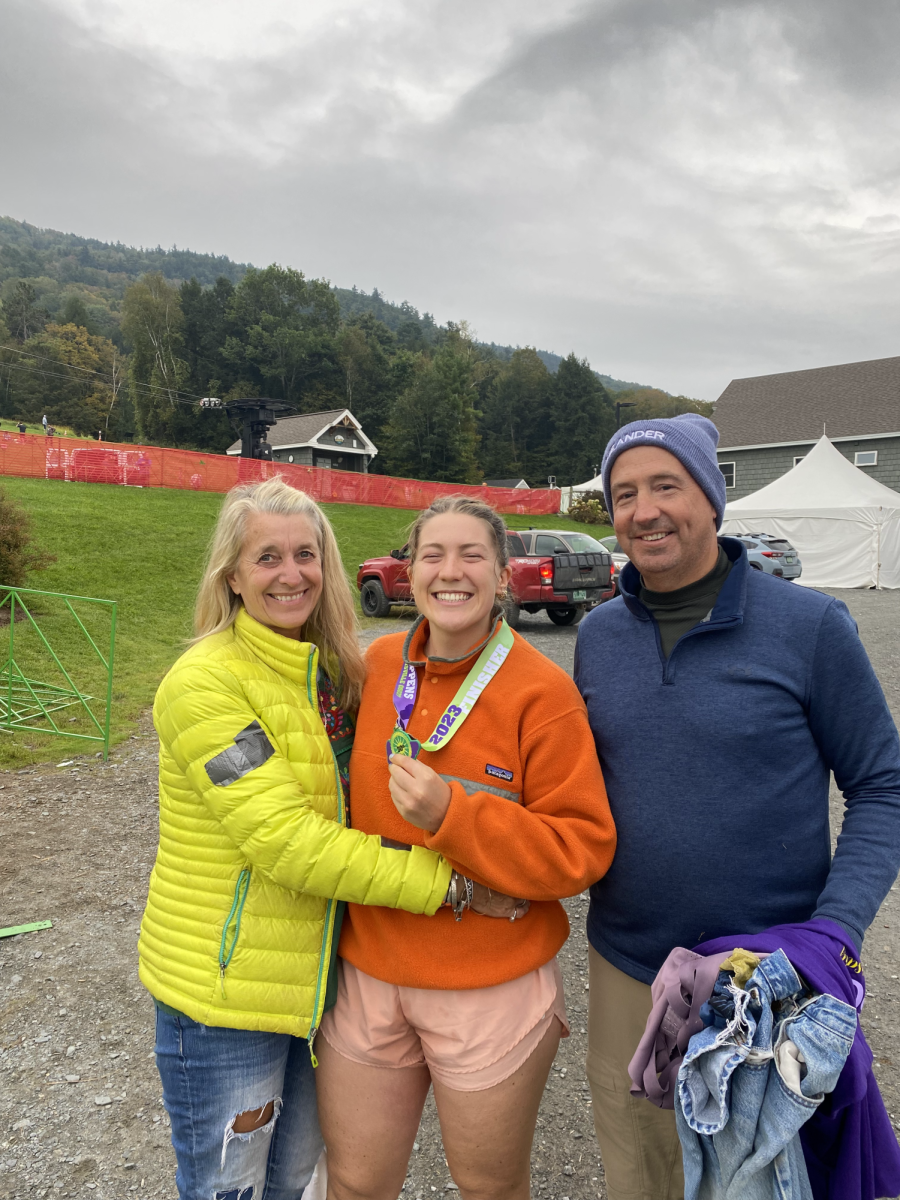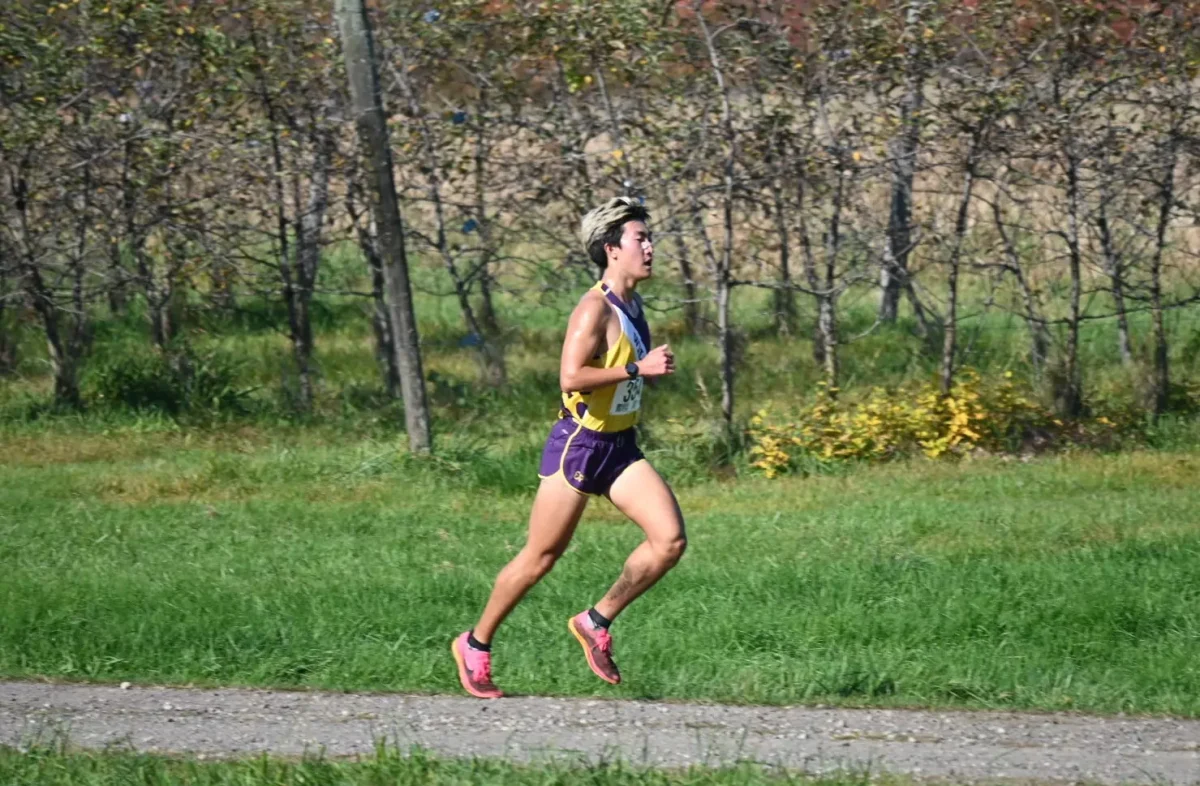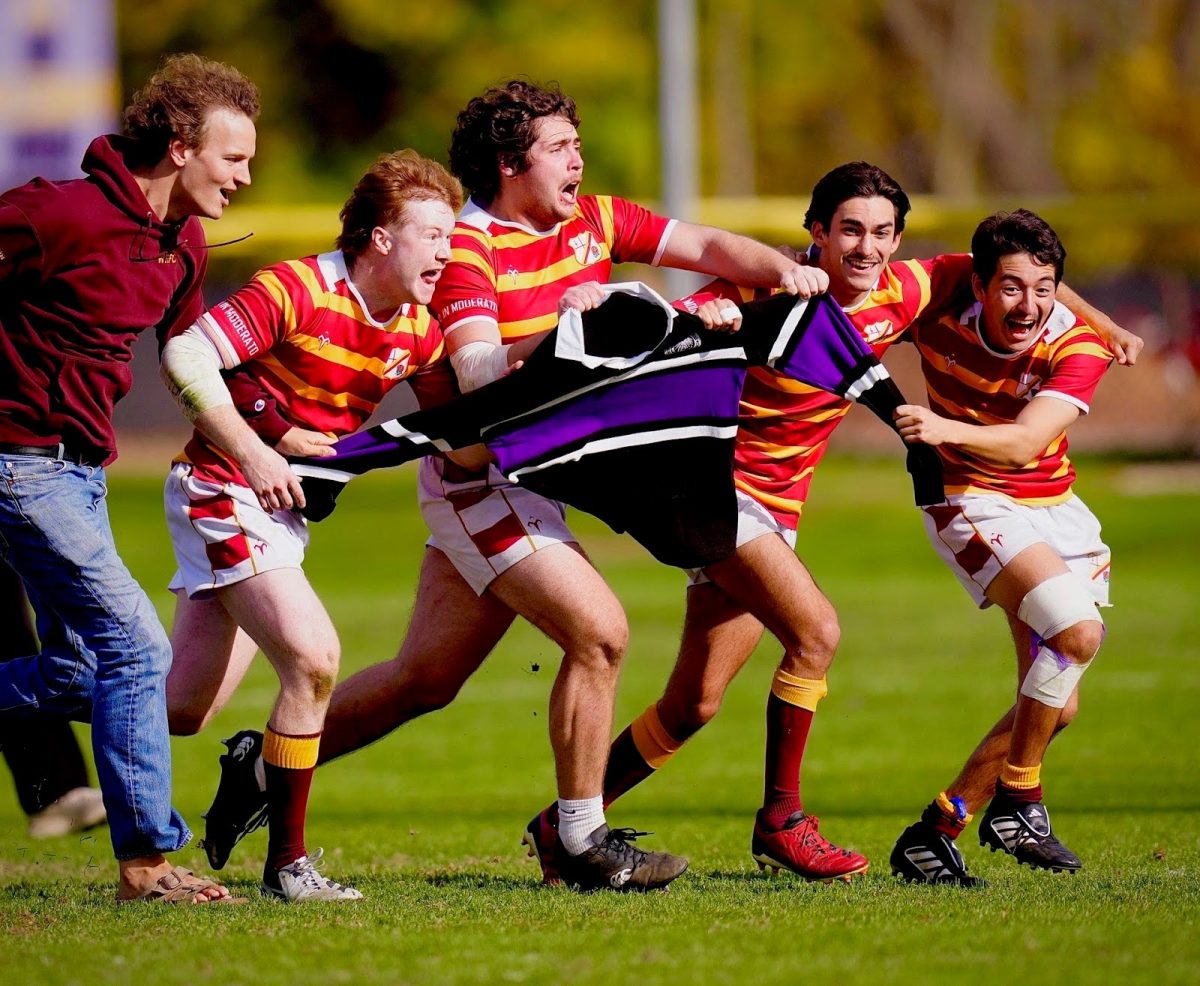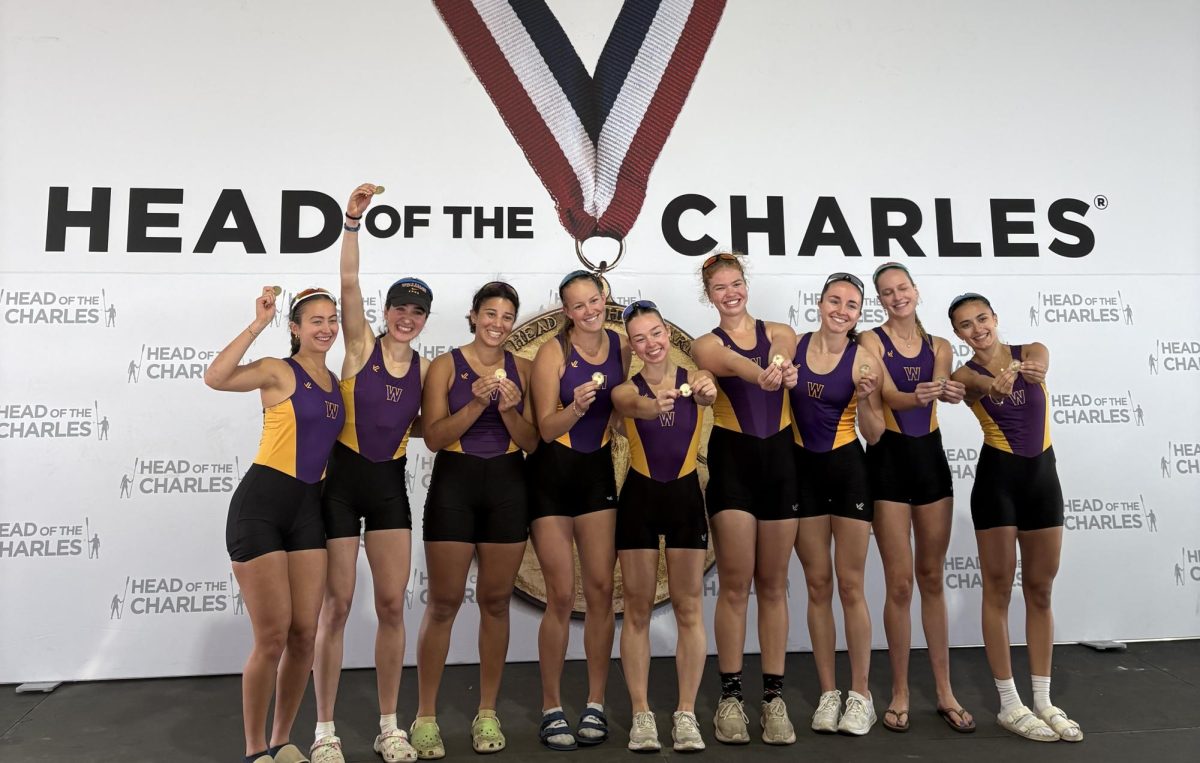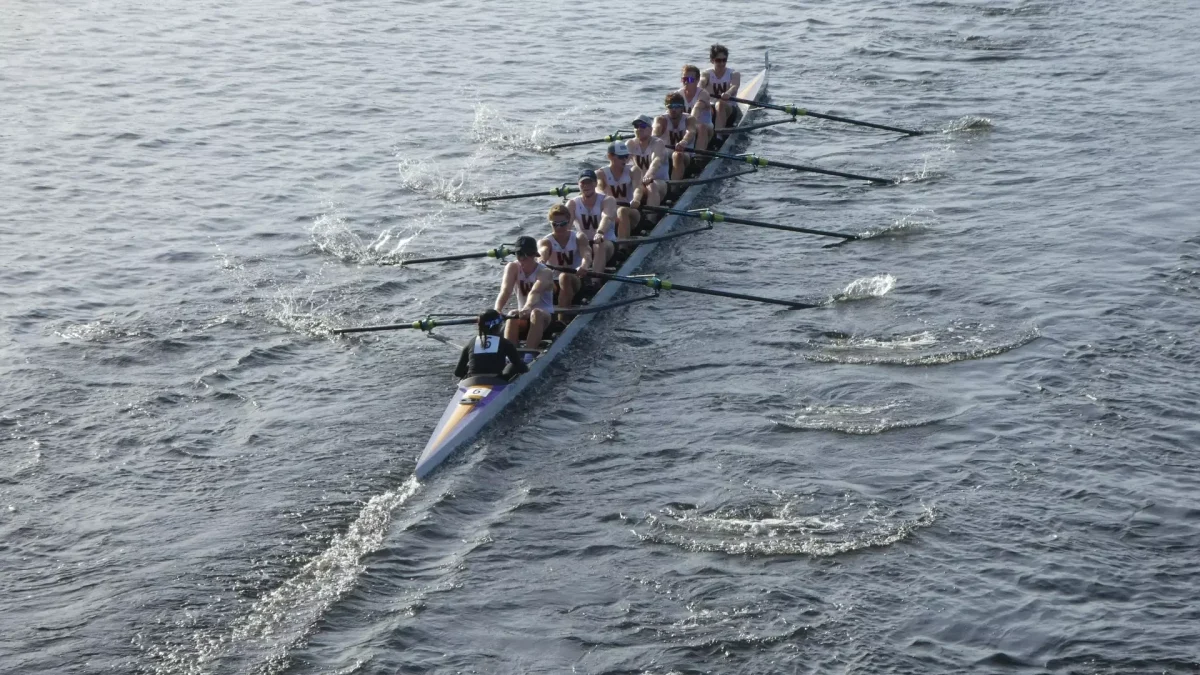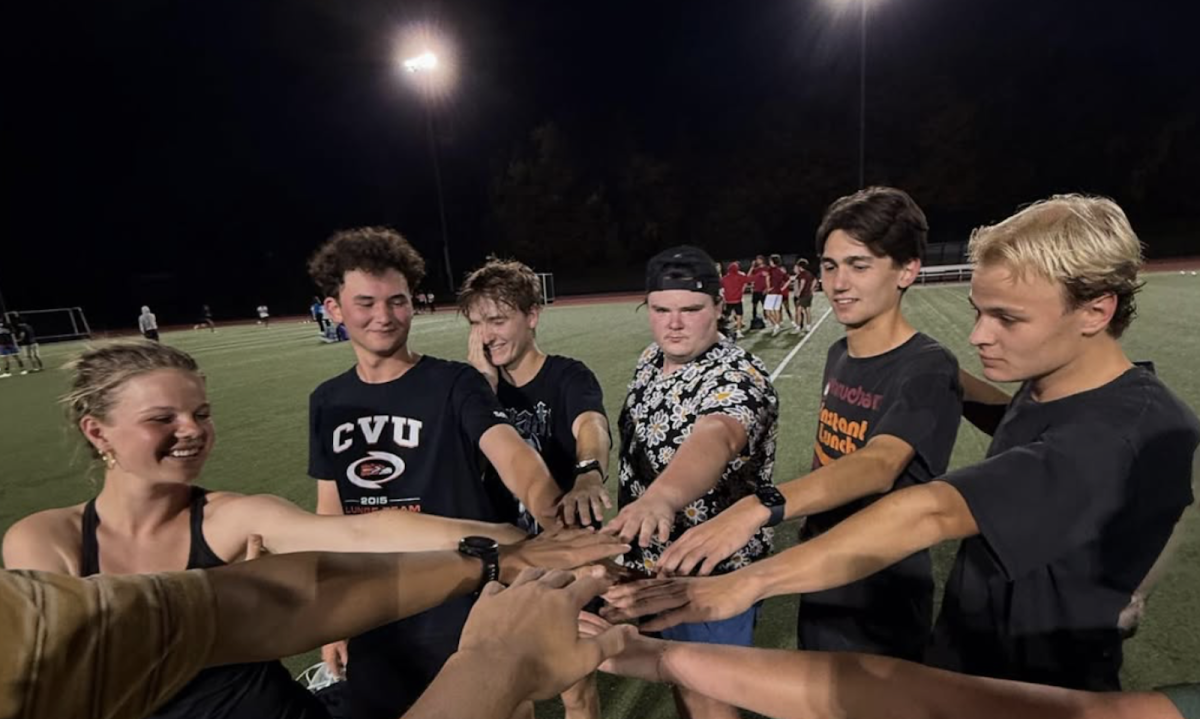 While most students were in bed at 3 a.m. on Sunday, Sept. 24, Berit Olsson ’24 was lacing up for the Vermont 50 Ultra Run — a 50-mile ultramarathon through the trails of Mount Ascutney, Vt. She completed the race with a time of 10:46:06, placing 61st out of 135 participants.
While most students were in bed at 3 a.m. on Sunday, Sept. 24, Berit Olsson ’24 was lacing up for the Vermont 50 Ultra Run — a 50-mile ultramarathon through the trails of Mount Ascutney, Vt. She completed the race with a time of 10:46:06, placing 61st out of 135 participants.
“I was actually very, very shocked,” Olsson said of her time. “I [swore] I was gonna be dead last.”
Her time, which made her 9th out of 13 women in her age group to cross the finish line, wasn’t the only surprise for Olsson — so was signing up. “It’s a pretty well-known mountain bike race, but then they do an [ultramarathon] component,” Olsson said. “My dad had done the mountain bike race a few times, so I knew about the race, and I very last-minute and without much thought signed up for it in February.”
While her decision to sign up for the 2023 Vermont 50 was an impulsive one, running an ultramarathon had been a goal of Olsson’s for the past two years. Her interest in extreme long-distance running came from her love of extreme sports documentaries, she said.
“I think there’s something really intriguing about people pushing the boundaries of what it is to be human,” Olsson said. “As a runner, sometimes, we get into the motion of running. It just feels natural, and it feels like what we’re meant to be doing as humans… It feels like what your body is meant to do, which is weird because it’s so extreme.”
Her approach to training was a bit more regimented, though perhaps not as much as one would expect. “I just looked up ‘ultramarathon training plan’ online, and I found one and printed it out,” Olsson said. “So really, not much thought, but the past couple years, I’ve run several marathons, so I had a pretty decent running base, so it was just kind of building off of that.”
Between February and this September, Olsson was only able to start training seriously in the summer, which she spent at the College. “I was the second youngest [runner],” she said. “I think it’s pretty unique, having the time to train for one of those, and I didn’t really have the time to train for it.”
“I was able to [race] because I did the bulk of the training over the summer, and thankfully, the research position I had was basically a nine-to-five, so I had plenty of time before and after,” she continued. “But [the] past three weeks of classes and running [were] a bit of a challenge.”
The longest workout Olsson completed prior to the ultramarathon was a 35-mile run. During the race, however, the most challenging aspect was not the distance. It was the silence.
“This race didn’t allow headphones, so I was just alone with my thoughts for so long,” she said. “And that was really hard, just entertaining myself because you definitely get to this point when you’re running where you disassociate and you’re just in your head, but then you have to fill things up in your head, so I was singing songs to myself or rehearsing conversations that I never had.”
Even though she spent 50 miles and over 10 hours alone, Olsson said one of her favorite parts of running the Vermont 50 was the community she became a part of. “Running had for a really long time been a very solitary thing for me,” she said. “So these past six months, it’s become much more social and something I’m sharing with others.”
At the same time, running the ultramarathon remained an individual triumph for Olsson. “Finishing [the race], I was just so overcome with self-love,” she said. “It’s something I poured a lot of energy in for the sake of just doing it, and that was a really awesome feeling at the end.”
While many long-distance races traditionally offer runners a free beer upon completion, Olsson said she has yet to receive one at the end of any of her marathons, including the Vermont 50. Despite this disappointment, however, her experience was positive.
“I think I’m gonna search my entire life for the free beer,” she said.



